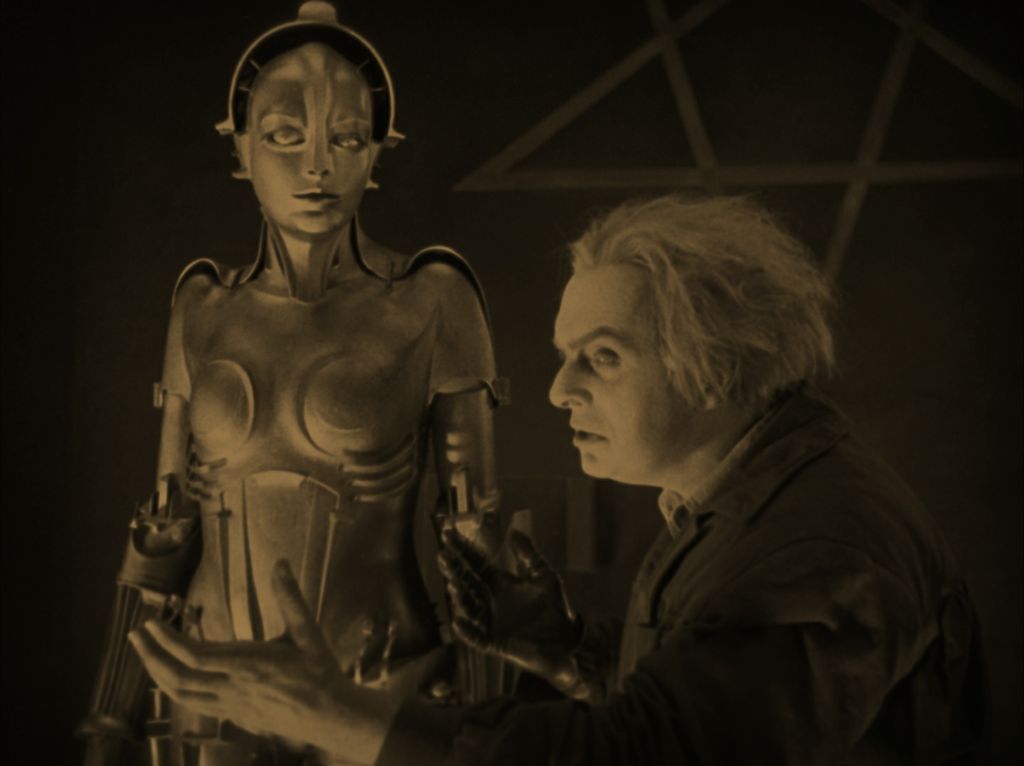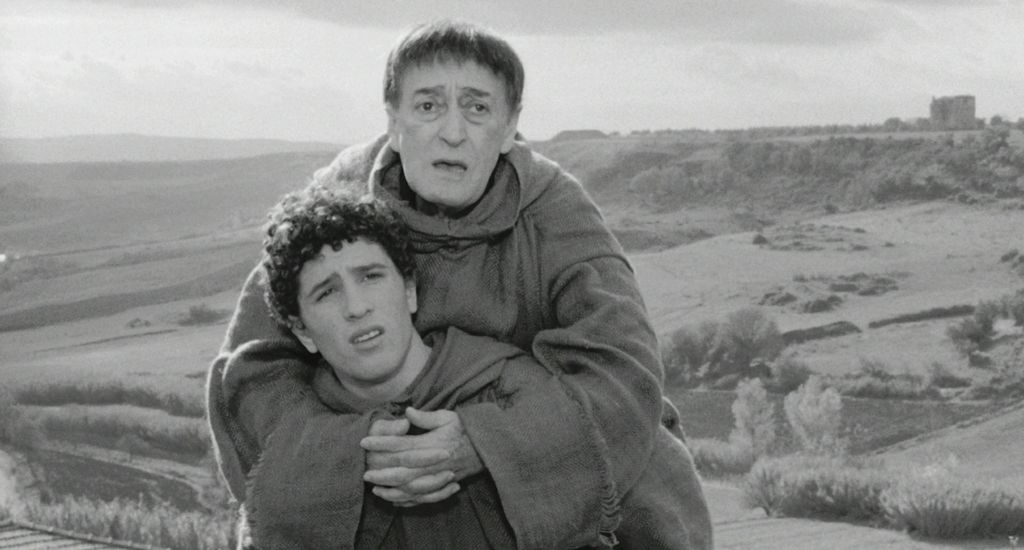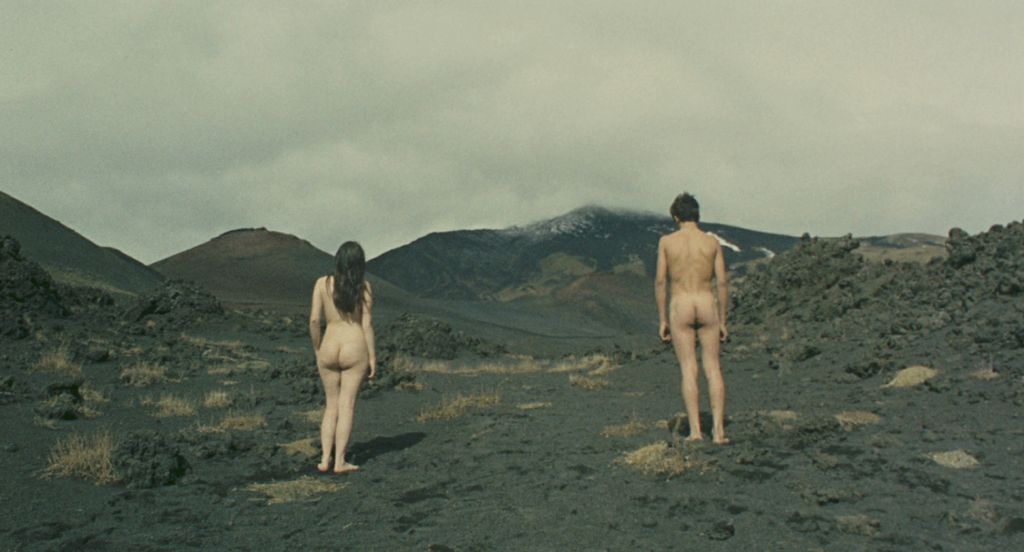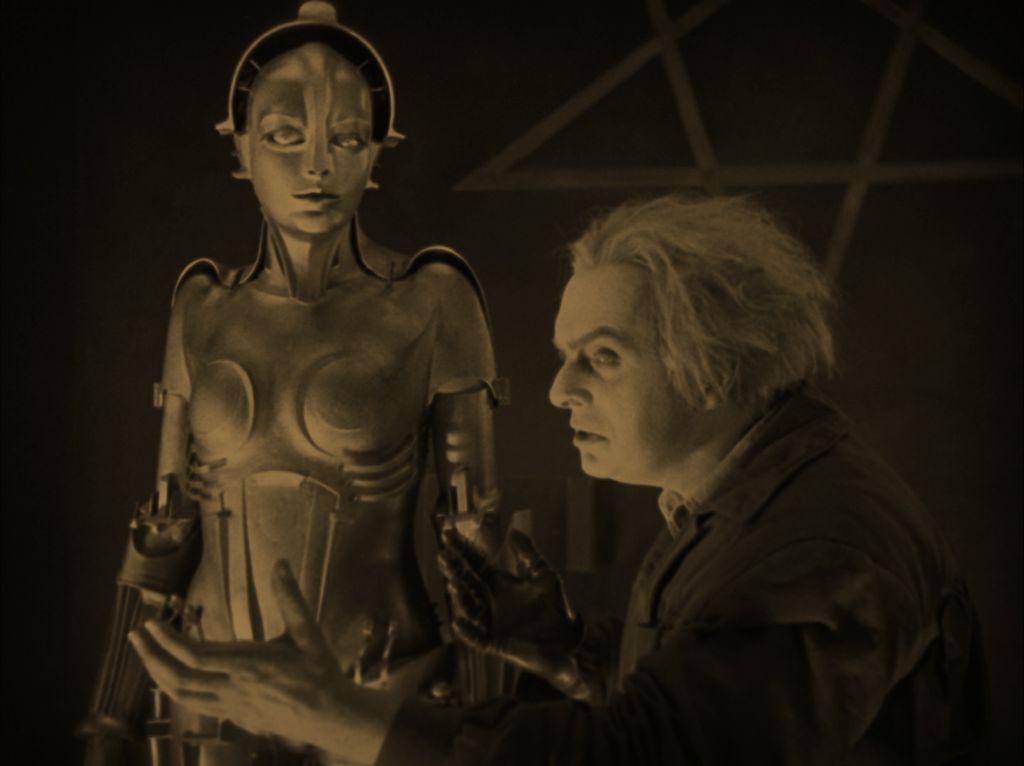In a nice antidote to blockbuster season, there is much food for thought to be had in three of this week’s DVD releases. (I doubt the debate surrounding the Batman shooting will last for long, and besides, despite the usual lazy journalism, that incident bears no relation to the film’s content.)
Projecting the messages that society will devour anything less than strict obedience, the futility of merging ideologies and the prediction of the abject suppression of the proletariat, the timing for the release of these films—Metropolis (1927); Hawks and Sparrows (1966); Pigsty (1969)—is perfect; only the most oblivious amongst us aren’t pondering the direction of humanity in our current society.
METROPOLIS
Fritz Lang’s dystopian sci-fi epic remains a spectacle, boasting some exquisite set design. The titular city is a towering, resplendent utopia, occupied by the upper classes. Unbeknownst to them is a segregated population of workers living underground, working in gruelling physical roles with little thought given to rights or welfare. Careful choreography highlights their conditioning; they are not human, merely cogs in machines that ensure the smooth operation of the high society above. A rebellion is led by the very tool the city’s ruler uses to further suppress.

The happy conclusion itself is naive, as recognised by Lang himself, but this does not rob from what feels like a dire prediction, allegorical or not, of what’s to come. This particular version of the film, however, isn’t quite so praiseworthy. Originally intended to be accompanied by orchestral score, this release uses Giorgio Moroder’s 1984 update. As much as he clearly loves the film—be sure to watch “The Fading Image”, the highly informative documentary included as extra—his musical interpretation is distracting at best. Synth-pop simply does not complement such a powerful story, the decision somewhat baffling. Regardless, a milestone in such a worthy film’s history requires viewing.

HAWKS AND SPARROWS (UCCELACCI E UCCELLINI)
From Italian director Pier Paolo Pasolini is this surreal ‘ideo-comic’, a strangely accessible, lighthearted affair—I disagree with Pasolini’s opinion that his original intention for comedy did not come across well—yet no less thought-provoking. Fun from the off due to good comedic timing and banter, we join a father and son pair ambling alongside Rome. They find themselves accompanied by a talking crow, who enquires as to their destination. They do not answer, as they do not know, and here begins this particular story’s philosophising.

The crow, a left-wing intellectual with thoughts on overpopulation, hunger and suffering, tells them the tale of two monks instructed to convert the hawks and sparrows to Christianity. Thus, we step back in time to observe the same actors—are they the same characters in a previous incarnation, destiny to always occupy a fruitless existence? One of many ponderings Hawks and Sparrows will throw up, such is its beauty—inevitably failing the task, the hawks thought to have taken on the message, only to continue attacking the sparrows, in an allegory that makes a timeless statement on the absolute pointlessness of organised religion.
PIGSTY (PORCILE)
Also by Pasolini, Pigsty is an affected slice of art-house that only seasoned cinephiles will find accessible, its message buried beneath much pretension. Two unconnected, intercut stories are told, in strong contrast to each other, each requiring strong concentration to follow. One strand follows a pair of cannibals who wordlessly rampage a barren landscape, whilst the other is heavy on exposition, revolving around an apathetic bourgeois and his refusal to either obey or disobey his father’s orders.

He is browbeaten by his arranged fiancee to no avail, who believes herself a radical but lacks conviction—”nothing in particular, ‘down with God'” says her halfhearted placard at Berlin’s first protest—but holds interest in little else but pigs, an interest that is never really quantified, but the assumption sexual. Meanwhile, his Hitler lookalike father colludes with a Nazi rival for an undetermined business purpose. Nothing in Pigsty is delivered to the viewer, the vast majority of the film requiring interpretation, other than a powerful final scene that leaves us in no doubt as to Pasolini’s opinions on the hypocrisy of a bourgeoisie, its priorities favouring the financial and outward appearance. Rather difficult to follow at points, but certainly worth the effort.
Three exceedingly different stories in both structure and content, which adds to the pleasure in films made many years ago that remain relevant, that can still make you think, for a multitude of reasons. Highly recommended for anybody fond of a little societal comment and politics within their art, especially so for presentation in good packages: Pasolini’s are accompanied by lengthy booklets featuring interviews with the filmmaker plus insight from an academic, whilst Lang’s comes in a limited edition steel book.

Naila Scargill is the publisher and editor of horror journal Exquisite Terror. Holding a broad editorial background, she has worked with an eclectic variety of content, ranging from film and the counterculture, to political news and finance.




















Weirdness and artistry. A solid combination.